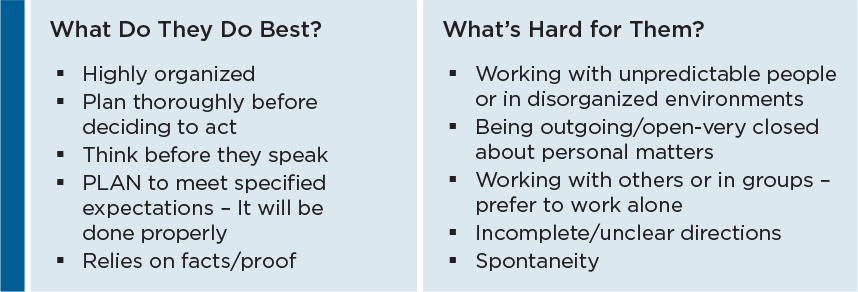Understanding Human Behavior Styles Can Improve Sales, Coaching and Leadership

Whether you’re a coach or a salesperson, if your communication approach is overly tilted toward your own dominant human Behavior Style, you risk ignoring or failing to connect with the other person and what they care about most.
All the change and turmoil of the last few months has put leaders and salespeople to the test. One change in particular, the pivot to virtual work, has made it even more challenging to keep customers and employees engaged.
While you may already be familiar with Behavior Styles and how they apply to sales and coaching situations, the shift to remote work — not to mention the stress many are under — has added a new dimension to the way we interact. By understanding and adapting to the human Behavior Styles of others, you can build trust and rapport even from a distance. And that’s essential in today’s environment, both for meeting revenue goals and for keeping employees engaged.
The tipping point between satisfied and loyal, whether you’re talking about customers or employees, is all about value. Loyal customers and employees don’t just receive value from us, they feel valued by us. And the way we make sure they feel valued is to understand their Behavior Style and honor their preferred communication style. It’s why effective, efficient communication is one of the last competitive advantages we have.
Behavior Styles: Strengths and Pitfalls
The first step is knowing your own style. While most people have one or two dominant styles, everyone is combination of styles. Whether you’re a coach or a salesperson, if your communication approach is overly tilted toward your own dominant human Behavior Style, you’ll risk ignoring or failing to connect with the other person and what they care about most.
With continued change and disruption hitting the workplace, it’s even more important to get your messages across clearly and empathetically. Identifying and connecting with the other person’s Behavior Style should always be part of your pre-call planning and coaching discussion prep.
Behavior Styles
As outlined below, each style has strengths and challenges, and that will impact your planning. Consider which of these tendencies may apply to you as the coach or salesperson, and then review the tendencies with your audience in mind to determine how to best serve their communication needs.
Talkers

But right now, they may be feeling stuck in the rigid routine of social distancing or staying home. They may also be struggling with lack of structure, planning and focus.
- Coaching Talkers: Assess if those challenges are impacting their productivity. If so, help them draw on their strengths to identify creative solutions to stay motivated and attentive to the details.
- Selling to Talkers: Focus on building the relationship, then demonstrate how you can help them simplify or navigate the details to implement your solutions.
Doers

Doers call it like they see it and have the courage to tell the truth from their perspective. But that candor is not always welcome. Another potential pitfall for Doers is impatience. We are communicating one hundred percent of the time, whether we’re speaking or listening, and impatience can be really obvious to the person with whom we’re talking.
- Coaching Doers: Make it clear your intention is to equip them to achieve their goals and enjoy greater success. Ask questions to help them identify and remove obstacles that could get in the way.
- Selling to Doers: Doers tend to dislike chitchat, so be brief and transition to a results-focused conversation quickly to demonstrate you value their time and goals. Be aware that, with Doers, rapport often happens at the end of the call, not the beginning.
Controllers

Controllers prefer to work alone and are less likely to share personal information.
They also dislike unpredictability and spontaneity — which can make today’s environment very challenging for them.
- Coaching Controllers: Prepare for the conversation with a clear objective in mind, and review and bring any relevant reports or data. Recognize that they prefer to have time to plan for change
- Selling to Controllers: Focus on benefits and the resulting return on investment (time, money, energy, etc.) from their perspective. Don’t view their questions as challenges; they’re a reflection of a natural tendency to analyze how the solution could meet their objectives. And don’t be afraid of silence. It just means they’re analyzing the information.
Supporters

Because Supporters want everyone to win, competition can be difficult for them. They have a natural tendency to value people, so it’s tough for them to work with people who don’t share that perspective. And they don’t want to hurt people’s feeling, which can make it hard to voice contrary opinions. To avoid risk Supporters will look at things from all angles before moving forward. Pressure is unsettling, so they can end up in analysis paralysis.
- Coaching Supporters: Provide the employee with an agenda of the coaching session and topic in advance. You can also make it easier for Supporters to express their opinions by helping them see how their perspective will serve another person’s growth or the broader purpose. Recognize that changing course quickly isn’t easy for them, so they may be struggling with the abrupt changes of the past few months.
- Selling to Supporters: Expect Supporters to need time to consult with others to gain consensus on next steps. Allow time for questions, and recognize that they’ll want to understand the process for implementing your recommendation and may need some kind of guarantee or “exit strategy” if the proposed plan does not meet their needs or expectations.
Leading, Coaching and Selling with Style
Stress is part of the equation right now, and stress tends to bring out even more of our dominant style tendencies. Self-awareness is critical to recognizing when you might be getting so out of balance that it’s becoming detrimental to effective communication and relationships.
We expect grace as sales leaders and coaches when we’re under stress, hoping people will judge us based on our intentions and motives and not necessarily our behavior in the moment. Be aware of how stress may also affect your customers’ and employees’ human behavior. Extend that same grace to your customers and employees, and they will more likely feel valued.
Learn more about Behavior Styles Assessments from Integrity Solutions.

Debbie Irving
Related Blog Posts



